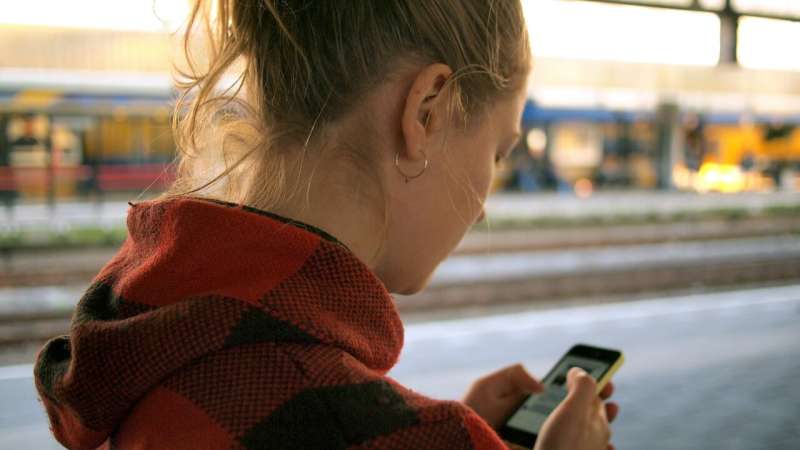This article has been reviewed according to Science X's editorial process and policies. Editors have highlighted the following attributes while ensuring the content's credibility:
fact-checked
trusted source
proofread
Social media algorithms amplify misogynistic content to teens: Report

Social media algorithms amplify extreme content, such as misogynistic posts, which normalizes harmful ideologies for young people, finds a new report co-authored by Professor Nicola Shaughnessy from the University's School of Arts.
The research, conducted in partnership between Kent, University College London (UCL) and the Association of School and College Leaders (ASCL), found a fourfold increase in the level of misogynistic content in the "For You" page of TikTok accounts over just five days on the platform, in an algorithmic modeling study.
Through interviews with young people and school leaders, the researchers also found that hateful ideologies and misogynistic tropes have moved off screens and into schools, becoming embedded in mainstream youth cultures.
Their research paper, "Safer scrolling: How algorithms popularise and gamify online hate and misogyny for young people," is published by the Association of School and College Leaders.
The report authors stress the need for a "healthy digital diet" approach to education to support young people, schools, parents and the community at large. They also say it is essential to champion the voices of young people themselves, particularly to include boys as part of discussions regarding online misogyny, and they suggest a "peer-to-peer" mentoring approach.
Professor Shaughnessy said, "Our research offers insights into how and why social media impacts on young people, particularly vulnerable groups and the importance of digital literacy as well as the potential of peer education to build resilience. Our work also offers a novel creative research method using archetypes generated from fieldwork to discover more about the processing of algorithms in real world contexts."
Principal investigator Dr. Kaitlyn Regehr (UCL Information Studies) said, "Algorithmic processes on TikTok and other social media sites target people's vulnerabilities—such as loneliness or feelings of loss of control—and gamify harmful content. As young people microdose on topics like self-harm, or extremism, to them, it feels like entertainment.
"Harmful views and tropes are now becoming normalized among young people. Online consumption is impacting young people's offline behaviors, as we see these ideologies moving off screens and into schoolyards.
"Further, adults are often unaware of how harmful algorithmic processes function, or indeed how they could feed into their own social media addictions, making parenting around these issues difficult."
The researchers began the study by interviewing young people engaging with and producing radical online content. This then informed the algorithmic study in the creation of archetypes, to represent typologies of teenage boys who may be vulnerable to becoming radicalized by online content.
The researchers set up accounts on TikTok for each archetype, with distinct content interests typical of these archetypes (for example, seeking out content on masculinity or addressing loneliness), and researchers used these accounts to watch videos that TikTok suggested in its "For You" page, over a period of seven days.
Initial suggested content was in line with the stated interests of each archetype, such as with material exploring themes of loneliness or self-improvement, but then increasingly focused on anger and blame directed at women. After five days, the TikTok algorithm was presenting four times as many videos with misogynistic content such as objectification, sexual harassment or discrediting women (increasing from 13% of recommended videos to 56%).
The research team led roundtables and interviews with school leaders, who attested that misogynistic tropes are becoming normalized in how young people interact in person as well.
The researchers set out the following recommendations:
- Holding social media companies accountable, and applying pressure on them to address the harm caused by their algorithms and prioritize the well-being of young people over profit.
- Implementing "healthy digital diet" education, which considers different types of screen time and digital content young people are engaging with, akin to different food groups, considering how much of it is consumed, how it can become "ultra-processed" due to algorithms, and potential impacts on mental and physical health.
- Peer to peer mentoring, empowering older pupils to work with their younger peers, and helping to involve boys in discussions around misogyny.
- Promoting wider awareness of algorithmic processes among parents and the community at large.
More information: Safer scrolling: How algorithms popularise and gamify online hate and misogyny for young people. www.ascl.org.uk/ASCL/media/ASCL/Help%20and%20advice/Inclusion/Safer-scrolling.pdf
Provided by University of Kent




















